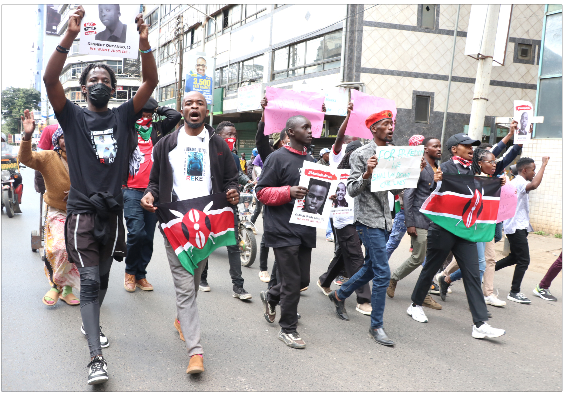
The case of Albert Ojwang has shone a ray of hope in a context that has hitherto been overwhelmed by despair.
Extrajudicial killings were increasingly being normalised. Some elements of the security agencies have been acting with reckless abandon, buoyed by the entrenched impunity.
There is little evidence to show that the perpetrators of these heinous acts have met justice.
One year later, no justice has been meted out against those who inflicted untold suffering on the Gen Z following last year’s protests.
It is safe to assume that the complacency certainly informed the handling of Albert Ojwang.
The hope is largely evidenced by the response surrounding Ojwang’s death. His spirit has thus far proven too strong to succumb to the usual attempt at division and manipulation.
Attempts by invested parties to drive a wedge politically and ethnically have flopped.
From the outset, sections of the political class appealed for caution, urging the public to ‘allow institutions to do their work.’
Unsurprisingly, this is the section that appears keen not to rock the broad-based government boat.
To them, going hard against the security agencies would unsettle the tenuous and delicate relationship between President William Ruto and former Prime Minister Raila Odinga. To their utter surprise and dismay, the appeal fell on deaf ears, if at all it reached.
In the same vein, an attempt was made to dichotomise the death along the government-opposition political fault line.
Condemnations and counter-condemnations by the rival political factions continue to be witnessed.
But this, too, has failed. It has not mattered who voices their desire for justice for Albert Ojwang', whether allied to the government or the opposition. All voices count.
Attempt was also made to ethnicise the death, largely by the same political class. Condemnation of Ojwang’s death by some individuals has been attacked and dismissed on account of their ethnicity.
This, too, has failed to deliver. So far, the death is holding off against the determined attempt by collusion, sabotage and cover-ups.
From the attempt to mislead on the cause of death, to the interference with the CCTV cameras at Central police station, escape routes continue to meet impregnable barriers.
The case of Albert Ojwang' evinces a unity of purpose fit enough to shake the entrenched impunity out of its debilitating complacency.
Religious leaders have used their pulpit to call for justice. His Gen Z counterparts have leveraged their online and offline presence to expose and call out any mischievous schemes; his counterparts in the teaching profession have not been left behind; civil society organisations, professional organisations and a section of the diplomatic community have all added their voices. The media, too, has availed its lethality through constant coverage.
Nothing is as refreshing and uplifting as the response surrounding the untimely, painful and undeserved demise of Albert Ojwang'. From the demonstrable unity of purpose, it would seem that Kenya is experiencing its own version of USA’s George Floyd moment. Hopefully, Kenyans sustain the pressure. Sustained vigilance is the ultimate antidote.
Political commentator










